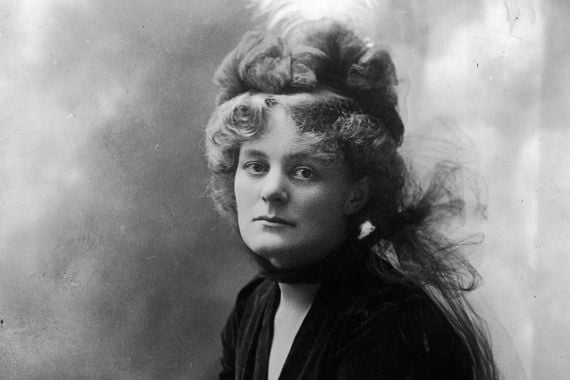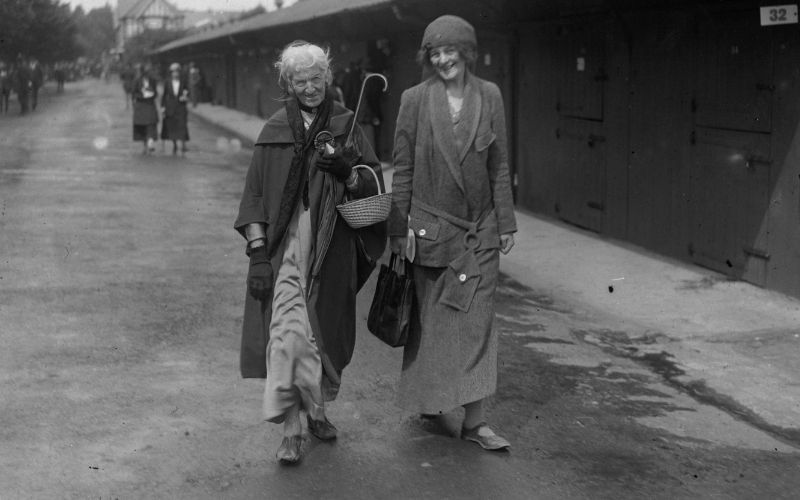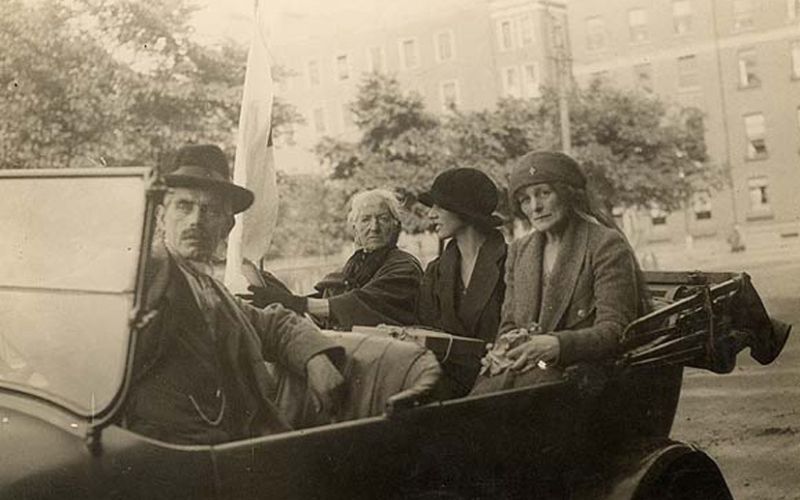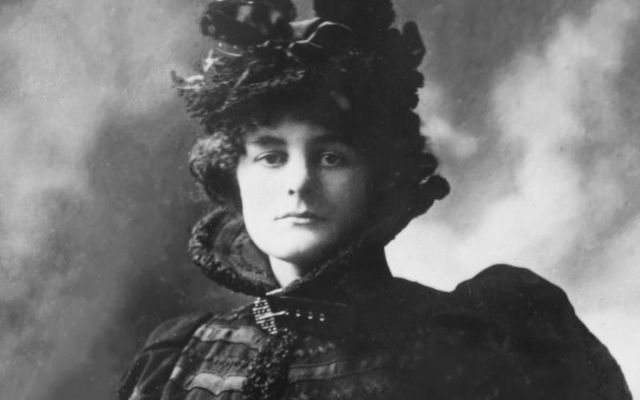Picture this: a little girl wrapped up in her blankets, flashlight in hand, reading carefully an illustrated book of celtic history her grandparents gave her. In this book, she reads countless tales of mythology and heartbreak. Within this book, she falls in love with poetry and all that it can offer.
I remember my first conversation with my dad about poetry. A poet himself, he was thrilled to have this conversation with me. He told me in detail about the greatest poet who ever lived, who in his mind was none other than William Butler Yeats. Yeats was an Irish revolutionary, a driving force in the Irish Literary Revival, and a titan of 20th century poetry. I remember listening to my dad recite to me countless poems, and eventually giving me my own book of them to read. "Aedh Wishes for the Cloths of Heaven" was my favorite. I wished someone would spread their dreams for me. If someone were to do that, I was sure that I would tread carefully.
Naturally, I needed to know who this poem was about. I asked my dad, and he told me about Maud Gonne, the muse who inspired all of Yeats’ poetry. When Yeats first met Gonne, he instantly became infatuated with her. He dedicated all of his poetry to her, and had her star in the plays he had written. He confessed his love for her many times, and proposed marriage four times. Each time, she rejected him and insisted that their relationship was only platonic. She married someone else. Eventually, Yeats tried to seduce Gonne’s daughter in response to her never loving him the way he claimed to love her.
It’s easy to see now that this form of obsession is nothing to be idolized. But with words so beautiful, it was hard for me to understand why Maud Gonne couldn’t love Yeats in the same way. I vaguely remember my father telling me about how Maud Gonne was also an Irish revolutionary, but I never understood the full extent of the relevance and sheer importance she had as a political activist and suffragette.
Instead, I reduced her to solely being Yeats’ muse. A muse is a source of inspiration for artists, but what happens when the muse is a revolutionary themselves?

Maud Gonne. (Getty Images)
Born into privilege, Maud started to become interested in Irish liberation when she witnessed evictions that took place during the Land War. According to the RTÉ archives, she stumbled upon the evicted tenants by accident. This shook up Maud’s previous life of parties and balls. “It was such fun. It took me a long time to discover that the war was in progress. The land war. I only discovered it accidentally when I witnessed some evictions. Then, I didn’t want to go to balls and parties anymore, because I would have had to dance and eat with the evictors.”
She saw babies being born in ditches in Limerick. She campaigned and gave passionate speeches in Donegal, which resulted in a warrant for her arrest, forcing her to flee to France.
By 1900, Maud had given speeches in Paris, London, Glasgow, Manchester, York, Dublin, and Cork. She worked for the United Irishman, writing articles. One article in particular, "The Famine Queen", would mark her as a legitimate political threat. "The Famine Queen" resulted in the seizure of all copies of the United Irishmen that published it.
Despite capturing negative attention from the police and the Castle, Maud continued to press forward. She continued to organize protests, make speeches, and write argumentative essays.
When she first met Yeats in 1889, he was instantly taken by her beauty and the “spell of her voice.” She was a tall and striking beauty. It’s debated on how tall she actually was, but she stood around the 6'-6' 4 range. It was love at first sight for Yeats, and he would spend the rest of his life obsessing over her, and making her the muse of his poetry.

August 1922: Charlotte Despard (1844 - 1939, left) and Maud Gonne McBride (1865 - 1953) at the Dublin Horse Show. (Getty Images)

Love Irish history? Share your favorite stories with other history buffs in the IrishCentral History Facebook group.
However, if her physical presence wasn’t imposing enough, her revolutionary mindset actively denied any passive connotations of what a muse’s role should be. It’s not like Maud was unaware of this role of hers. Maud was aware of her role in Yeats' life, and wondered if her legacy would be cemented through Yeats’ poetry. She knew that she was Yeats’ muse and took ownership of it, even writing to him once after he claimed he could never be happy without her, “Oh yes you are, because you make beautiful poetry out of what you call your unhappiness and are happy in that. Marriage would be such a dull affair. Poets should never marry. The world should thank me for not marrying you.”
Maud’s relationship with Yeats wasn’t entirely one-sided. His romantic desires were never reciprocated, but Maud loved Yeats deeply. Even though she turned down the four marriage proposals Yeats gave to her, she agreed to a ‘spiritual marriage’ after the sudden death of her son George. The grief of losing George spun Maud into developing an interest in spirituality and the occult, specifically in regard to reincarnation. She never told Yeats that the child that she was grieving was her own. Simply, that it was a child that she adopted, revealing nothing about her Parisian affair.
With encouragement from Yeats, she joined the Order of the Golden Dawn, an occult organization that Yeats was heavily invested in. Yeats hoped that she would be as interested in the occult as he was, and that she would eventually put the energy that she dedicated so heavily to Irish liberation, to spirituality. Eventually, he hoped that so much time together would force Maud to realize that he was the man for her, and finally agree to marry him.
She never did. Instead, she grew quite bored of the Order of the Golden Dawn. She found the members to be dull and frustrating, and decided to focus even more heavily on Irish Freedom, and her work with evicted tenants.
Maud felt like the nationalist movements she found herself involved in often excluded women. In her opinion, this held back the cause. So, she decided to do something about it. She established Inghinidhe na hÉireann, a women's organization that desired to establish the complete independence of Ireland, encourage the study of Gaelic and Irish literature, to support Irish manufacturers, and to raise money to complete and support nationalistic objectives. The voice that once attracted a young W.B Yeats was now attracting women from all over Ireland, and taking them from the outskirts of Irish emancipation to the frontlines of the civil war. She formed the Women’s Peace Committee, and also established a monthly magazine under Inghinidhe, Bean na hÉireann. Additionally, Maud established the Women’s Prisoners’ Defense League, where she published monthly under the pseudonym, “A woman of no importance."

July 4, 1922: Maud Gonne McBride (far right) on duty with a relief agency in Dublin during the Irish Civil War. (Public Domain / National Library of Ireland)
As I started to get older, the more I learned about Maud. I learned about her bravery, her dedication to independence, her fight for social welfare, and her faith in the Irish Literary Revival. Unfortunately, I learned about her flaws as well. Maud was an anti-semite, which contradicts the empathetic work that those who were close with knew her for. Kim Bendheim, a biographer of Maud Gonne, noted in her book, "The Fascination of What’s Difficult: A Life of Maud Gonne," that “...how or why Maud developed her anti-semitism remains a puzzle."
Additionally, even though she claimed to be a pacifist, Maud often advocated for violence and war. To the horror of Yeats, Maud believed that the goal of the Irish was to destroy their enemy, no matter the cost.
Despite all this, I’ve found it difficult to find any work on her that doesn’t use her relationship with Yeats as a focal point. The work that Yeats created in response to her brains and beauty are filled with beautiful prose and imagery. And yet, that doesn’t define Maud Gonne. She had her own wits, her own convictions, her own prejudices, and her own life completely separate from Yeats himself.
If Yeats can have thousands of articles without mentioning his ‘muse’, why can’t Maud have the same thing?
I want to emphasize that I don’t believe that being called a ‘muse’ is an insult. I believe it to be a compliment to be the inspiration of meaningful work. But I believe that people are denied something by this label, that they are denied seeing the woman behind the work as anything other than just an inspiration, when in reality they often are so much more. Women have always had unique contributions to art, but have had to position themselves into places they were never meant to fit. The world of business, politics, and art in the Western world has not been designed for women to thrive. Instead, it’s taken powerful women throughout history to pioneer their own way, and consistently go against the grain. They have to stand up taller and stronger than what is expected of them, and consistently prove to others why they matter.
I wonder how many books I’ve loved, inventions I’ve taken for granted, and movies that I loved to watch that had a woman at the center of its creation without the proper credit. It’s a shame that there are so many brilliant women in history that I’ll never get to fully know and understand their contributions to the world thanks to societal constraints.
In some ways, I should be grateful to the muse. It can be a truly beautiful thing to be, if we celebrate the muse for what she really is, instead of reducing her into a box she was never meant to fit. Maud was fearless, fascinating, and deeply flawed, all while being responsible for beautiful poetry. It’s time that she is freed from the limits of being remembered solely as Yeats' personal Helen of Troy, and let her be known for all that she’s done, not just what she inspired.
*Claire Fairtlough is a Master’s student studying Writing and Publishing in the US.




Comments